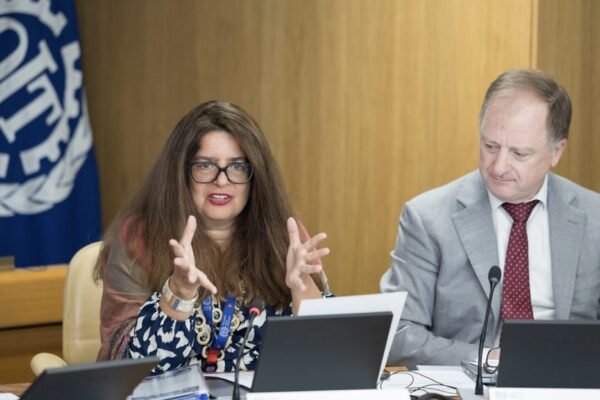
Screenshot
Geneva, 10 June 2025 – In a powerful reaffirmation of their long-standing alliance, Brazil and the International Labour Organization (ILO) convened for the XII Annual South-South Review Meeting, held on the sidelines of the International Labour Conference in Geneva. The gathering underscored a shared commitment to social justice, decent work, and inclusive development across Latin America, Africa, and Asia-Pacific.
Described by ILO Director of Multilateral Partnerships Peter van Rooij as a “historic partnership,” the Brazil–ILO collaboration has evolved into a global model for South-South and triangular cooperation. “This is more than a partnership, it’s a movement,” van Rooij said, highlighting the transformative potential of solidarity-based development.
A Legacy of Cooperation
Brazil’s engagement with the ILO dates back to 1919. Since then, the country has ratified 98 ILO conventions and contributed over $44 million to support initiatives promoting decent work and sustainable development. The 2009 launch of the Brazil–ILO Partnership Programme marked a turning point, creating a platform to advance Sustainable Development Goal 8 through knowledge sharing, technical assistance, and policy innovation.
Laura Thompson, ILO Assistant Director-General, praised Brazil’s leadership: “Brazil is not just back, it’s leading. This partnership is rooted in mutual learning and a deep commitment to social justice.”
A Tripartite Commitment
The meeting brought together representatives from Brazil’s government, employers, and workers’ organizations. Minister of Labour and Employment Luiz Marinho emphasized Brazil’s alignment with global efforts to tackle inequality and promote inclusion. “South-South cooperation is our answer to global challenges,” he said, referencing Brazil’s recent accession to the ILO’s Global Coalition for Social Justice.
Workers’ representative Lourenço do Prado (UGT) and employers’ representative Alexandre Furlan (CNI) echoed the importance of tripartite dialogue. Furlan noted the need to boost productivity and called for stronger social industries and training systems. A new $4 million fund was announced to support these efforts.
Innovation and Global Leadership
The meeting also spotlighted Brazil’s growing role in global policy dialogue. Maira Lacerda, from the Ministry of Labour and Employment, highlighted Brazil’s BRICS presidency and its leadership in discussions on artificial intelligence and climate change. “We are committed to a just transition that opens new opportunities for decent work,” she said.
Ana Virginia Moreira, ILO Regional Director for Latin America and the Caribbean, pointed to Brazil’s leadership in tackling child labour and promoting decent work in rural supply chains. “Social justice is the compass guiding our response to the complex challenges of the Global South,” she said.
Justice, Dialogue, and Accountability
Judicial and legal voices also played a prominent role. Superior Labour Court President Aloysio da Veiga emphasized the importance of legal frameworks in upholding labour standards, while Labour Attorney General José de Lima Ramos Pereira shared a powerful case of forced labour in Brazil’s wine sector that led to a landmark sectoral pact.
Vera Paquete-Perdigão, ILO Director of Governance, called for renewed urgency in eliminating child labour. “Brazil stands out as a model,” she said, citing the Bolsa Família program and Brazil’s role in hosting global conferences on child labour.
A Model for the Future
Ambassador Tovar da Silva Nunes, Brazil’s Permanent Representative to the UN in Geneva, closed the session by reaffirming Brazil’s commitment to multilateralism and social dialogue. “In a world where solidarity is under strain, Brazil and the ILO are showing that cooperation is not only possible, it is essential.”
As the world grapples with economic uncertainty, digital transformation, and climate change, the Brazil–ILO partnership offers a compelling blueprint for inclusive, sustainable development rooted in shared values and mutual respect.

